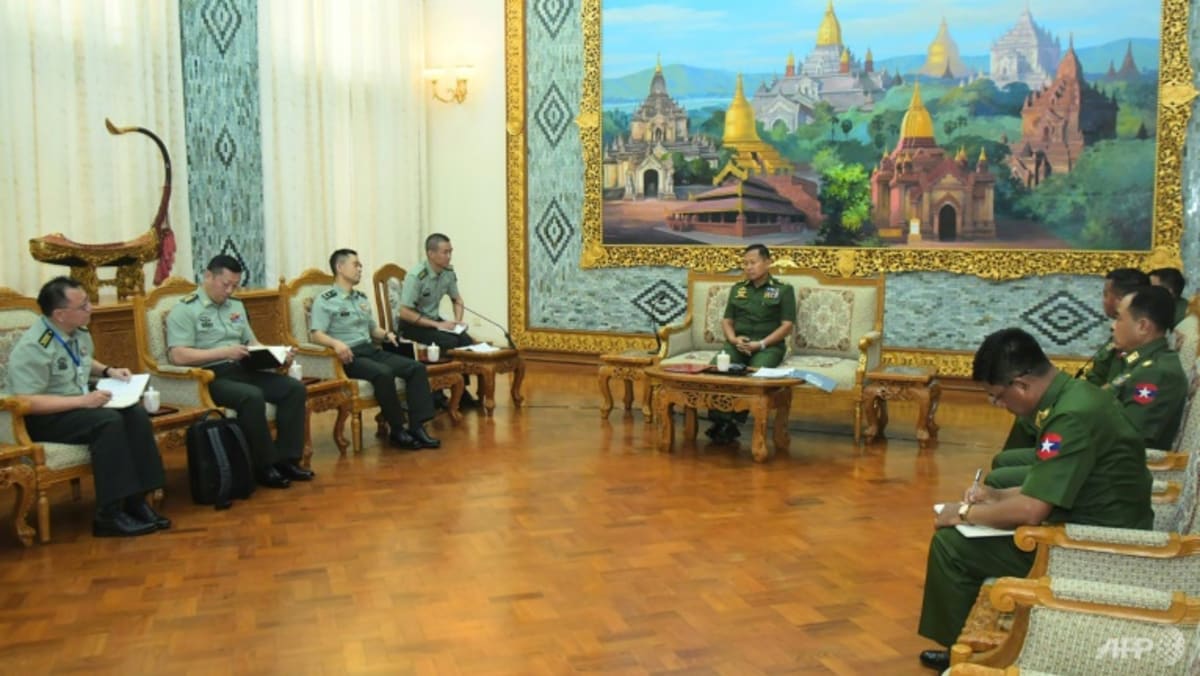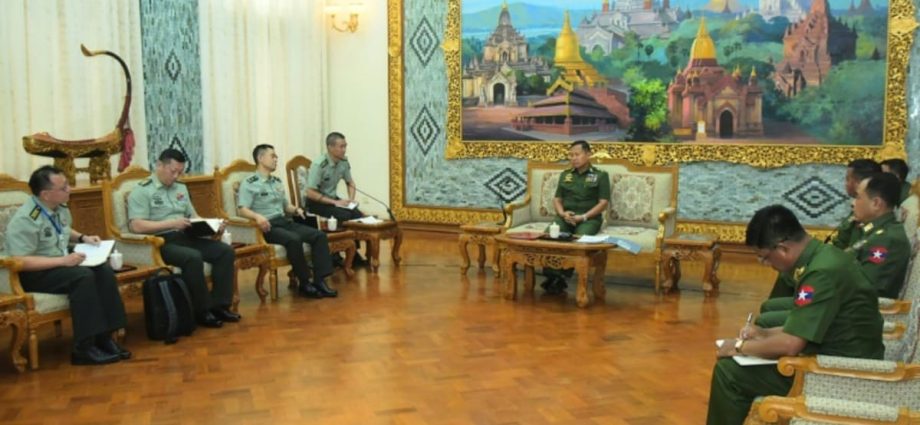
The junta has been shunned by many in the international community over its bloody crackdown on dissent, but China has maintained ties with the regime.
Myanmar’s military has imported US$267 million in arms and equipment from China since it seized power, including from state-owned entities, the United Nations’ special rapporteur on human rights in Myanmar Tom Andrews said earlier this month.
Several projects in Beijing’s sprawling Belt and Road infrastructure initiative are slated to run through northern Myanmar, linking China’s landlocked Yunnan province with the Indian Ocean.
Beijing also backs and arms several ethnic rebel groups along its border with Myanmar, analysts say.
Some of these groups have clashed repeatedly with the Myanmar military in the aftermath of the coup, and an alliance of China-backed rebels in March called for Beijing’s help to defuse the crisis.
Earlier this month, China’s foreign minister travelled to Myanmar to meet junta chief Min Aung Hlaing, becoming the highest-ranking Chinese official to meet the top general since the coup.
At the meeting, Qin Gang called on the international community to “respect Myanmar’s sovereignty”, according to a statement from the Chinese foreign ministry.
Beijing’s diplomats are also mediating between Myanmar and Bangladesh on a pilot programme to repatriate Rohingya refugees who fled a 2017 military crackdown that is currently the subject of a UN genocide investigation.
More than 3,500 people have been killed in the Myanmar military’s crackdown on dissent, according to a local monitoring group.

